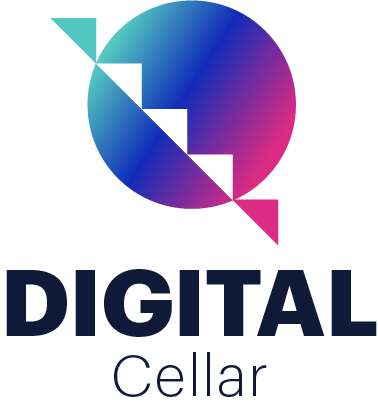In the ever-evolving landscape of digital marketing, the symbiotic relationship between Artificial Intelligence (AI) and Search Engine Optimisation (SEO) is both fascinating and complex. As businesses increasingly harness the power of AI to enhance their online presence, questions arise about the potential impact on SEO strategies.
Will Artificial Intelligence be a game-changer, revolutionising the way we approach SEO, or does it pose challenges that might jeopardise current practices? In this blog, we delve into the intriguing intersection of AI and SEO, exploring whether these technological advancements are a boon or a bane for the digital realm.
Understanding AI and its Impact on SEO
AI, or Artificial Intelligence, refers to the simulation of human intelligence in machines that are programmed to think like humans and mimic their actions. In the context of SEO (Search Engine Optimisation), AI plays a crucial role in how search engines operate, how websites are optimised, and how content is created to improve visibility and rankings on search engine results pages (SERPs).
AI in Search Engines
AI (Artificial Intelligence) in search engines is essentially about making these platforms smarter, more intuitive, and better able to serve up the exact information users are looking for. Understanding AI’s role in search engines means recognising how it’s changing the way we search for and find information online.
But that’s not all! AI is the brain behind ranking content. It checks if what we find is not just on point but also fresh and deep. So, when you search, you get results tailored to what you need, not just generic stuff. And guess what? AI makes your search experience personal. It looks at your past searches, where you are, what device you’re using, and even the time of day. The result? This personalisation makes the search experience more relevant and efficient, as the results are tailored to the user’s specific context and preferences, making your life easier.
Ever wondered how those voice-activated assistants like Siri or Alexa understand what you’re saying? Yep, you got it – AI. It turns your spoken words into text, figures out what you’re asking, and finds the right answers. AI is at the heart of this technology, converting spoken language into text, understanding the query, and fetching relevant results. The conversational nature of voice search requires AI to comprehend more natural, spoken queries.


AI also does cool stuff with images and videos. It uses visual recognition technology to understand and categorise multimedia content, so you can find exactly what you’re looking for without sifting through loads of titles and tags. And here’s the big move, AI fights off spam and dodgy content. It will ensure users are presented with reliable and valuable information, making sure you only get the relevant stuff. AI keeps learning from new patterns of manipulation to stay ahead of those trying to game the system.
Lastly, AI enhances semantic search capabilities, which focus on understanding the relationship between words in a query, the context, and the searcher’s intent. It connects the dots between words in a search, the situation, and what we’re after. This makes search results way more spot-on and tuned in to what we have in mind.
AI in SEO Strategies
In the landscape of digital marketing, Artificial Intelligence (AI) emerges as a game-changer, transforming how businesses approach Search Engine Optimisation (SEO). We unravel the innovative ways in which AI technologies enhance and redefine the traditional methods of optimising content for search engines. Let’s break down the role of AI in SEO strategies.
Content Optimisation
AI in content optimisation represents a transformative approach to how content is crafted and refined to meet both search engine standards and user expectations. It involves recognising its capacity to analyse vast amounts of data, predict trends, and offer actionable insights to create more effective and engaging content. Here’s a breakdown:
Keyword Research and Analysis
AI tools can process and analyse large data sets to identify trending keywords, long-tail phrases, and user questions that your target audience is searching for. This goes beyond traditional keyword research by uncovering deeper insights into how people use language and search for information online, allowing you to optimize your content with terms that drive traffic.
Content Relevance and Quality
AI algorithms can evaluate the relevance and quality of content by comparing it against a wide range of factors, including user engagement metrics, topic authority, and readability. This means you can use AI to assess your content’s performance and make necessary adjustments to improve its visibility and ranking on search engine results pages (SERPs).
Personalisation
AI enables the personalisation of content at scale. By analysing user data, AI can help tailor content to match the interests, preferences, and search histories of individual users or specific audience segments. This level of personalisation ensures that users find your content more relevant and engaging, which can improve click-through rates and conversions.
Predictive Analysis
AI’s predictive capabilities allow marketers to forecast content trends and user behaviours. By predicting what topics will become popular or understanding the types of content that resonate with your audience, you can stay ahead of the curve and produce content that captures attention and ranks well.
Automating Content Creation
While AI should not replace human creativity, it can assist in generating content ideas, outlines, and even draft content for certain topics. AI-generated content can be a starting point that saves time and resources, which you can then refine and humanise to ensure it engages real readers.
User Experience
AI (Artificial Intelligence) significantly enhances SEO strategies by focusing on user experience (UX), a critical factor in how search engines rank websites. Personalisation takes centre stage as AI delves into users’ past actions and preferences, enabling websites to deliver tailored content, suggest products aligned with individual tastes, and fine-tune search results. AI also helps improve how you navigate websites, giving feedback on what could be simpler or easier to find, like rearranging menus or suggesting better link structures to enhance overall usability.
Content relevance is another forte of AI, leveraging insights into user preferences to prioritise and tailor articles, blog posts, or products, contributing to an enriched user experience. It even speeds up how fast a website loads, which, believe it or not, affects how much you enjoy your time there and helps the site show up in searches.
With the increasing prevalence of voice-activated devices, AI steps in for voice search optimisation, understanding natural language patterns and user intent, thereby refining content to match conversational queries and enhancing the overall user experience in voice searches. AI helps predict what we’re about to search for, suggesting things as we start typing, streamlining and expediting the search process.


Beyond these functionalities, AI contributes significantly to various aspects of website improvement. From chatbots providing instant assistance and personalised recommendations to dynamic visual and interactive content creation that boosts engagement and dwell time, AI enhances accessibility for users with disabilities and continually refines the user experience based on direct feedback gathered from surveys, reviews, and social media. This comprehensive integration of AI-driven solutions ensures websites remain dynamic, responsive, and attuned to evolving user preferences.
Personalisation
AI’s role in shaping personalised SEO strategies represents a major shift toward delivering tailored and relevant online experiences. Personalisation in SEO involves adapting content, recommendations, and interactions to suit the distinct needs, interests, and search behaviors of individual users. For those just starting, grasping how AI fuels this personalisation unveils exciting opportunities to boost website visibility and user engagement. Comprehending how AI drives this personalisation reveals exciting opportunities to enhance website visibility and user engagement.
Taking a closer look, AI algorithms sift through a heap of user data from websites, social media, and digital platforms, pinpointing distinctive patterns and preferences. This data-driven approach empowers the customisation of content, ensuring each visitor receives tailored information.
Additionally, AI plays a role in delivering personalised search engine results based on a user’s past behavior, location, device usage, and time of day. This personalised approach extends to dynamically adjusting website content based on user behavior and predicting future actions. The result is an enhanced user experience that significantly boosts engagement, user satisfaction, and loyalty. However, the adoption of AI-driven personalisation also presents challenges related to data privacy and ethical considerations, requiring businesses to navigate these issues carefully by ensuring transparency and granting users control over their data.
AI offers a pathway to more relevant, engaging, and user-focused online experiences. By harnessing AI to understand and predict user needs, businesses can create content and digital experiences that not only rank well in search engines but also truly resonate with their audience.
Challenges and Opportunities AI Brings to SEO
The integration of Artificial Intelligence (AI) into SEO strategies holds promising opportunities but comes with its share of challenges. Grasping these challenges is vital to navigating the intricacies of modern SEO effectively.
Here’s a breakdown of the main hurdles:
Keeping Up with Rapid Technological Advances
AI technology evolves swiftly, demanding marketers to stay abreast of the latest developments. Continuous learning and adaptation to new AI tools can be time-consuming, necessitating ongoing investment in training.
High Initial Investment Costs
Implementing AI-driven SEO strategies often entails significant upfront costs. This includes investments in AI tools, platforms, and possibly specialists to manage and interpret AI data, which may pose challenges for small businesses or startups.
The complexity of AI Technologies
AI systems can be intricate, requiring a deep understanding of both the technology and its application in SEO. Businesses without a solid grasp of AI may struggle to leverage it effectively, leading to suboptimal strategies.
Data Privacy and Ethical Concerns
AI heavily relies on data, raising concerns about privacy and ethical data use. Navigating data privacy laws and ensuring ethical practices, especially with regulations like GDPR, can be challenging.
Risk of Over-Reliance on AI
There’s a temptation to overly depend on AI for SEO solutions. However, AI is a tool, not a cure-all. Over-reliance can neglect other critical aspects of SEO, such as creative content creation and genuine user engagement.
Interpreting AI Insights Correctly
While AI provides valuable data, interpreting it accurately and applying it effectively requires expertise. Misinterpretation can lead to misguided strategies.
Ensuring Content Remains Human-Centric
AI-optimised content should not sacrifice human appeal. Balancing SEO with engaging, valuable content is crucial for user satisfaction.
Maintaining Brand Voice and Authenticity
AI-driven personalisation requires careful execution to preserve a brand’s voice and authenticity, preventing content from appearing impersonal.
Dealing with SEO Volatility
AI-driven search algorithms constantly evolve, resulting in SEO volatility. Businesses need agility to pivot their SEO approaches quickly.
Integration with Existing Systems
Integrating AI tools with existing marketing and SEO systems can be technically challenging, requiring significant IT resources and potentially leading to integration issues.
Despite these challenges, integrating AI into SEO strategies offers substantial benefits, promising more targeted, efficient optimisation. Addressing these challenges through continuous learning, ethical data practices, and a balanced approach can empower businesses to harness the power of AI for significant SEO enhancement. Now, let’s bridge the gap from acknowledging the challenges to exploring the promising opportunities that AI brings to the dynamic landscape of SEO. By addressing these challenges head-on, businesses can unlock the door to a new era of more targeted, efficient, and effective optimisation strategies.
These are some numerous advantages that AI brings forth to SEO:
- Advanced-Data Analysis
AI’s proficiency in processing and analysing large datasets swiftly and accurately provides marketers with deeper insights into search trends, user behaviors, and content performance, facilitating more informed decisions and targeted strategies.
- Improved Content Relevance and Quality
AI aids in identifying content gaps, suggesting relevant topics, and optimising content for both search engines and user intent, ensuring it is more valuable and pertinent. - Enhanced User Experience (UX)
By analysing user behavior, AI offers recommendations to enhance website navigation, design, and content layout, contributing to a superior user experience—a pivotal factor in SEO. - Personalisation at Scale
AI enables the personalisation of website content and user experiences based on individual user data, significantly improving engagement and conversion rates. - Voice Search Optimisation
As voice searches gain popularity, AI’s ability to understand natural language queries becomes crucial, optimising content for voice searches by focusing on conversational keywords and questions. - Predictive SEO
AI’s predictive analytics capabilities empower marketers to forecast future trends and user behaviors, informing content strategies and helping businesses stay ahead of the curve. - Automated SEO Tasks
Routine SEO tasks, including keyword research, competitor analysis, and backlink monitoring, can be automated with AI, allowing professionals to focus on strategy and creativity. - Content Generation and Optimisation
AI-powered tools assist in generating content ideas, creating drafts, and optimising existing content for SEO, enhancing content production processes. - Link Building Strategies
AI analyses the web to identify potential link-building opportunities and evaluates the quality of backlinks, facilitating the development of more effective link-building strategies. - Fraud and Spam Detection
AI algorithms can identify and filter out spammy content and backlink practices, ensuring SEO efforts prioritise genuine, quality content creation and ethical practices.
So, Will AI Hurt SEO?
The question of whether AI will hurt SEO is a common concern, especially as artificial intelligence technologies continue to evolve and become more integrated into search engines and digital marketing practices.
However, rather than viewing AI as a threat to SEO, it’s more accurate and constructive to see it as an evolution of SEO. Here are the reasons why:
- AI as an Evolution, Not an End
Artificial Intelligence is changing how search engines understand and rank content, making them more sophisticated in interpreting user intent and delivering relevant search results. This doesn’t mean the end of SEO; rather, it signifies a shift in strategies. SEO professionals need to adapt to these changes, focusing more on creating high-quality, relevant content and providing a superior user experience. - The Role of Content
Content remains king in the SEO world, and AI reinforces this by prioritising content that is genuinely useful, well-written, and tailored to the audience’s needs. AI can help identify gaps in content and suggest areas for improvement, but it’s up to humans to create content that resonates with readers. - User Experience (UX) Becomes More Crucial
AI technologies enable search engines to better assess the user experience of websites, including factors like page loading speed, mobile-friendliness, and ease of navigation. Optimising for these factors not only aligns with AI-driven SEO but also benefits users directly. - Personalisation Opportunities
AI allows for more personalised search experiences, adjusting results based on user behavior, location, and preferences. For SEO, this means adopting strategies that cater to these personalised experiences, such as local SEO and content personalisation. - The Importance of Ethical SEO
As AI becomes more adept at detecting manipulation and black-hat SEO tactics, the importance of ethical SEO practices becomes even more pronounced. AI’s role in SEO encourages transparency, quality, and value-driven content strategies. - Continuous Learning and Adaptation
The dynamic nature of AI and its impact on SEO means that marketers and SEO professionals must commit to continuous learning and adaptation. Staying informed about AI trends and algorithm updates is crucial for maintaining effective SEO strategies. - Human Insight is Irreplaceable
While AI can analyse data and predict trends, human insight is irreplaceable, especially when it comes to understanding the nuances of human emotion, cultural context, and creativity in content creation.
In summary, AI is not poised to kill SEO but to transform it. The future of SEO in an AI-driven world will likely focus more on creating quality content, optimising for a superior user experience, and leveraging AI for insights and personalisation, all grounded in ethical SEO practices. If you’re in the SEO game, the AI surge is your chance to shine, get creative, and really get what your audience digs. It’s like SEO with a futuristic twist – exciting times ahead!
The dynamic landscape of SEO in the age of artificial intelligence reveals that AI won’t harm SEO but instead redefine its parameters, urging us toward more authentic, user-focused strategies. The integration of AI into SEO practices offers a wealth of opportunities to enhance content relevance, personalise user experiences, and optimise digital footprints more efficiently than ever before. If you’re looking to stay ahead in this dynamic environment, The Digital Cellar is your ideal partner. Our expertise in blending traditional SEO with the latest AI technologies ensures that your brand not only keeps pace with these changes but thrives, turning potential challenges into avenues for growth. Contact us today to explore how we can transform your SEO strategy and prepare your business for the future of digital marketing.
This content was helped created by the use of AI (Artificial Intelligent) and thoroughly edited, fact-checked, and proofread by human to cater to audience




